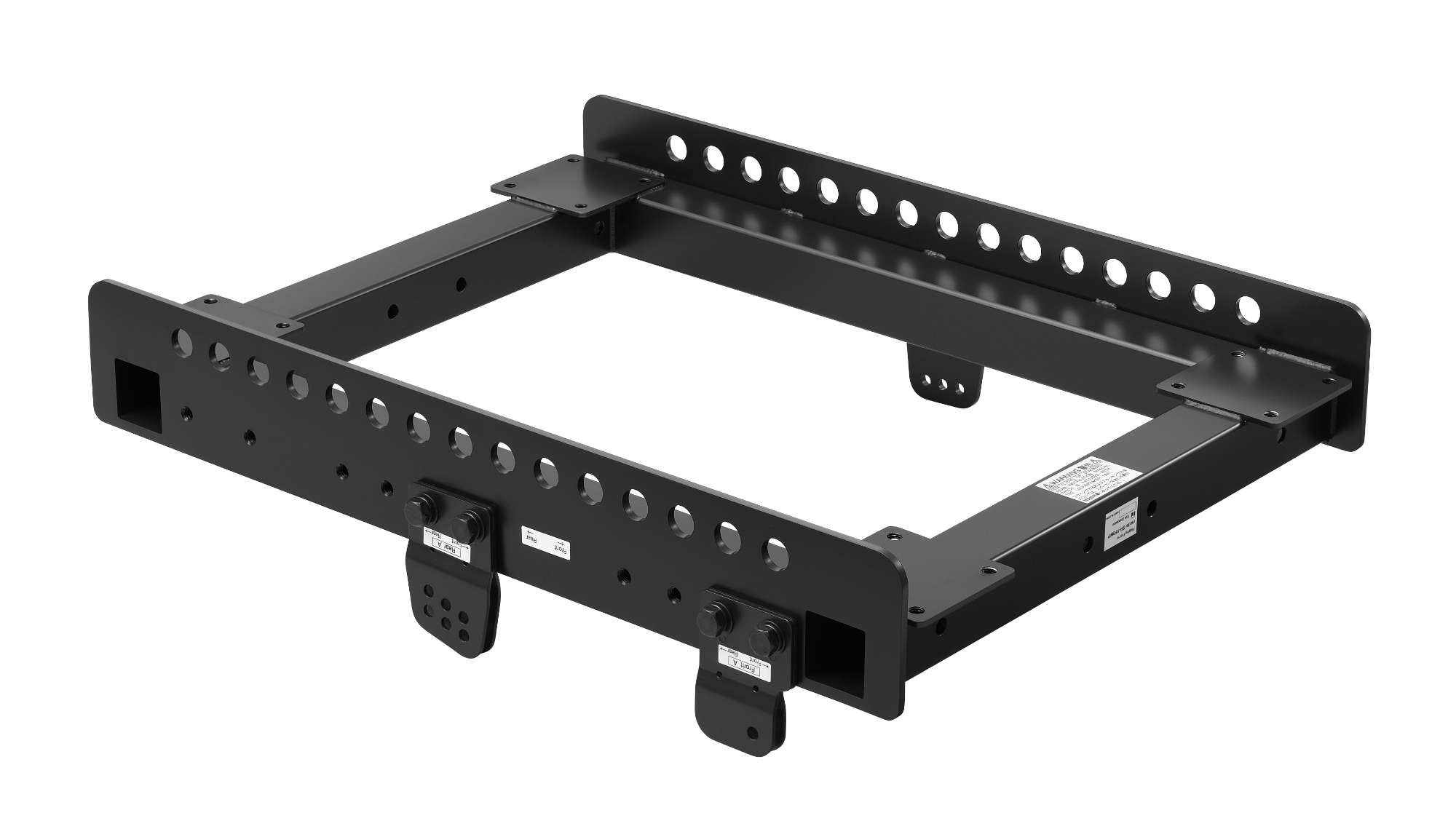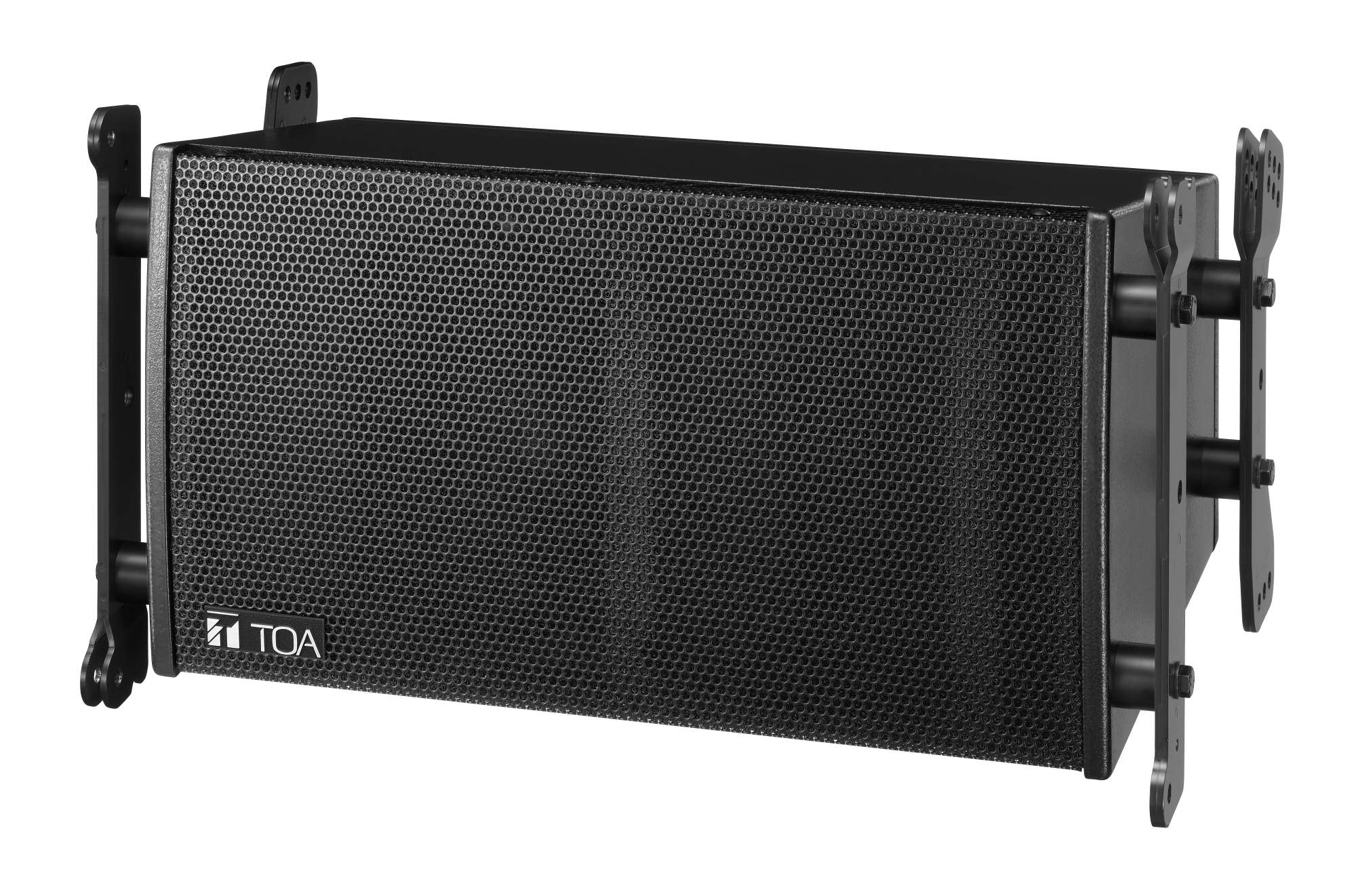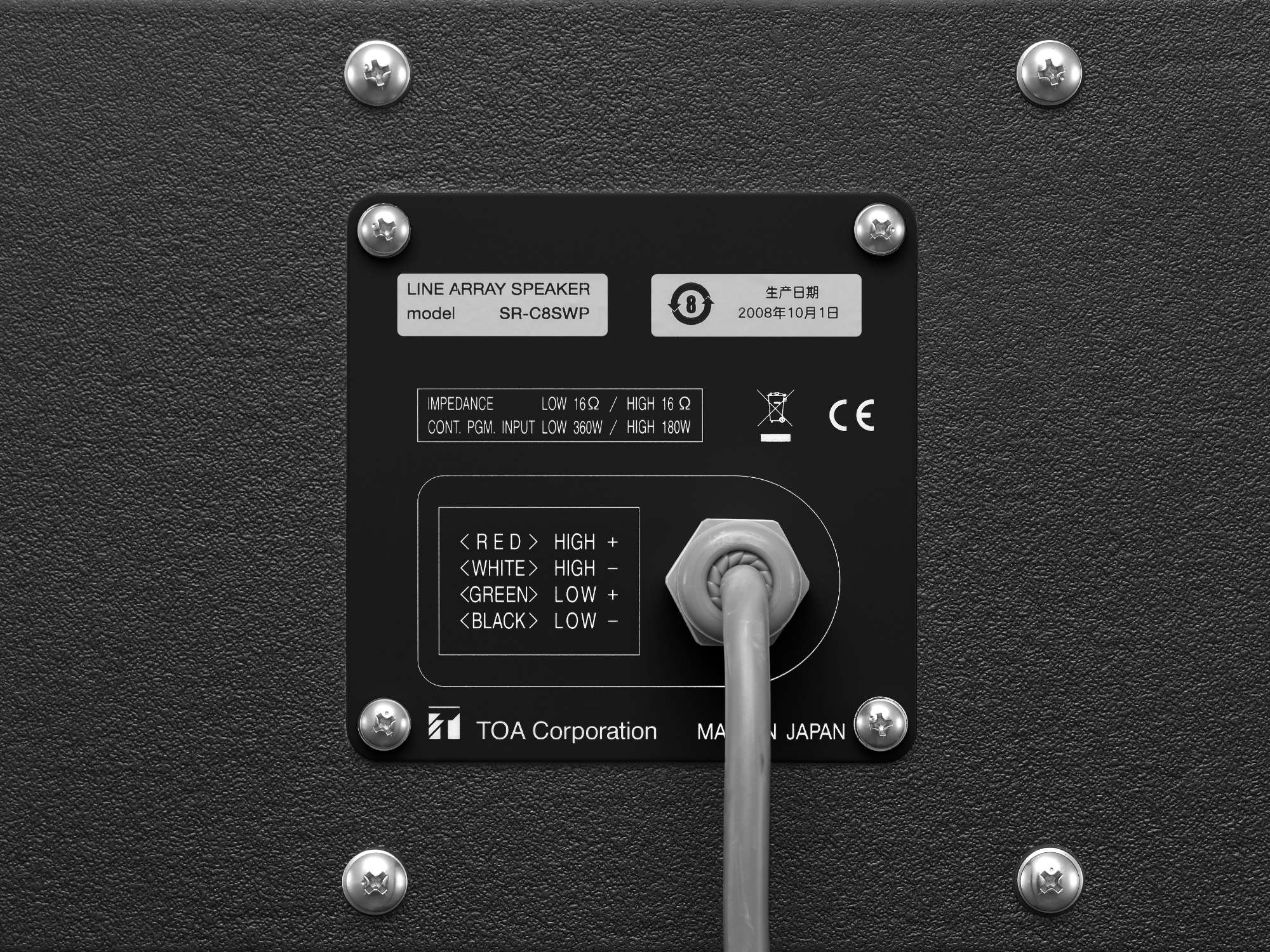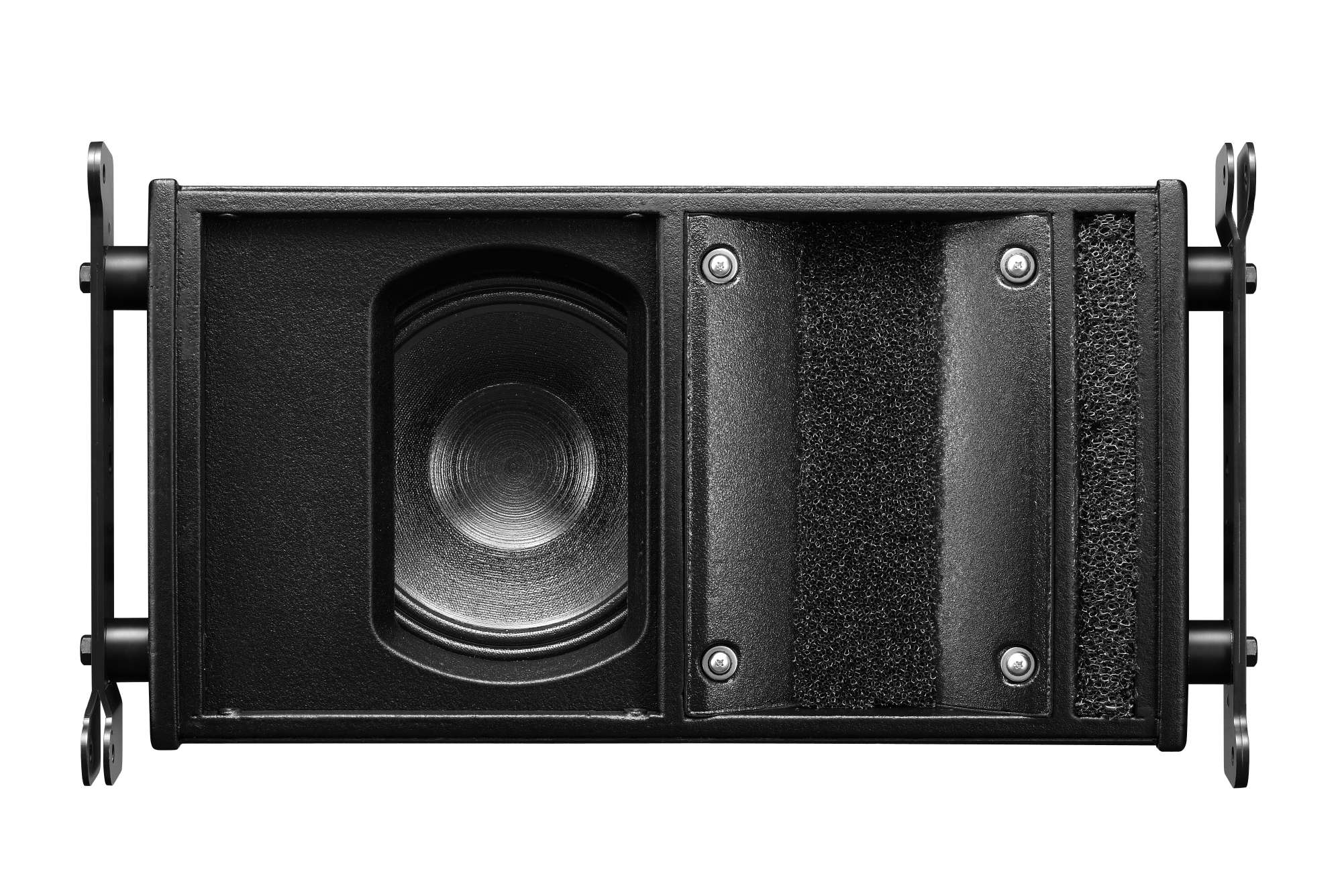
SR-C8SWP
Line Array Speaker
SR-C8SWP
The SR-C8SWP is a 2-way line array speaker featuring wave front control technology which creates a sound field with high sound clarity and uniform sound pressure. Recommended digital speaker processor is the DP-SP3. It can be converted into the bi-amplifier drive system by changing the internal connection.
- Sync-Drive wave guide technology
- Uniform, high frequency sound field with excellent sound clarity and minimal interference
- Phase wave-front control technology for a high-frequency sound range that is attenuation free and high fidelity
- Adjustable sound coverage by connecting a number of speakers and combining speakers with different dispersion angles
- Feedback resistant - reflection-free operation
- Single or bi-amp mode
- Drivers can be quickly replaced from the rear of the speaker enclosure
Low: 360 W, High: 180 W (bi-amp mode)
Low: 16 Ω, High: 16 Ω (bi-amp mode)
Low: 95 dB (1 W, 1 m), High: 110 dB (1 W, 1 m) (bi-amp mode)
High frequency: Wave front control horn 110° (horizontal) x 15° (vertical)
+ compression driver x 2
Front grille: Punched stainless steel, black, paint
Please download Datasheet to access full specifications.
Installation Accessories

Functional & Interface Accessories
The speaker shall be a two-way component module designed for use in a modular line array system. The low-frequency section shall consist of one 8" (20cm) Neodymium woofer. The high frequency section shall consist of two compression drivers, each having a 1" (25 mm) Neodymium driver. The high frequency waveguide shall consist of two throat sections feeding a single shared mouth, with each throat section incorporating 8 paths of equal length from the driver throat to the waveguide mouth to obtain effectively isophasic output for maximum efficiency of operation in a line array system. The speaker shall include an integral input connection cable, 8.6 mm (0.34") outside diameter, 4-conductor, 3 m (9.84") long.
The speaker shall meet the following performance criteria. Power handling in biamp mode: Low Frequency input: 360 W continuous program; High Frequency input: 180 W continuous program. Power handling in single-amp mode: 360 W continuous program. Frequency response (10 dB below rated pressure sensitivity, with recommended crossover and equalization): 65 Hz to 20 kHz. Sensitivity (1 W at 1 m) in bi-amp mode: Low Frequency: 95 dB; High Frequency: 110 dB. Sensitivity (1 W at 1 m) in single-amp mode: 98 dB. Rated impedance in bi-amp mode: Low Frequency: 16 ohms nominal; High Frequency: 16 ohms nominal. Rated impedance in single-amp mode: 16 ohms nominal.
The speaker's horizontal and vertical coverage shall be tailored for use in a line array consisting of multiple units from the same series arranged one above the other so that each pass-band section forms a vertical line. The horizontal coverage shall be 110 degrees nominal. The vertical coverage shall be 15 degree nominal. Extending the vertical coverage area shall be possible by stacking multiple units from the same series. The consistency of coverage shall not be degraded when multiple units are stacked. The combined vertical coverage of multiple units, when stacked, shall be adjustable from that of a straight line array (coverage area defined by the height of the array) to a curved array, with the combined coverage angle adjustable in 1 degree increments.
The speaker enclosure shall be made of plywood and finished with black urethane coating. The speaker shall comply with the IEC IPX4 standard for dust and water resistance and operate within a temperature range from -10°C to +50°C (14°F to 122°F). The speaker grille shall be made from a single punched stainless steel plate and finished with black paint. The dimensions (W x H x D) shall be 526.6 x 293 x 294 mm (20.73" x 11.54" x 11.57") and weight shall be 16 kg (35.27 lbs.). The speaker enclosure shall be equipped with M8 threaded steel plates for the secure attachment of optional accessory brackets.
The loudspeaker shall be TOA model SR-C8SWP.
The rigging frame shall be TOA model SR-RF8WP.
Please sign in to access further technical materials such as software, firmware or EASE files.




